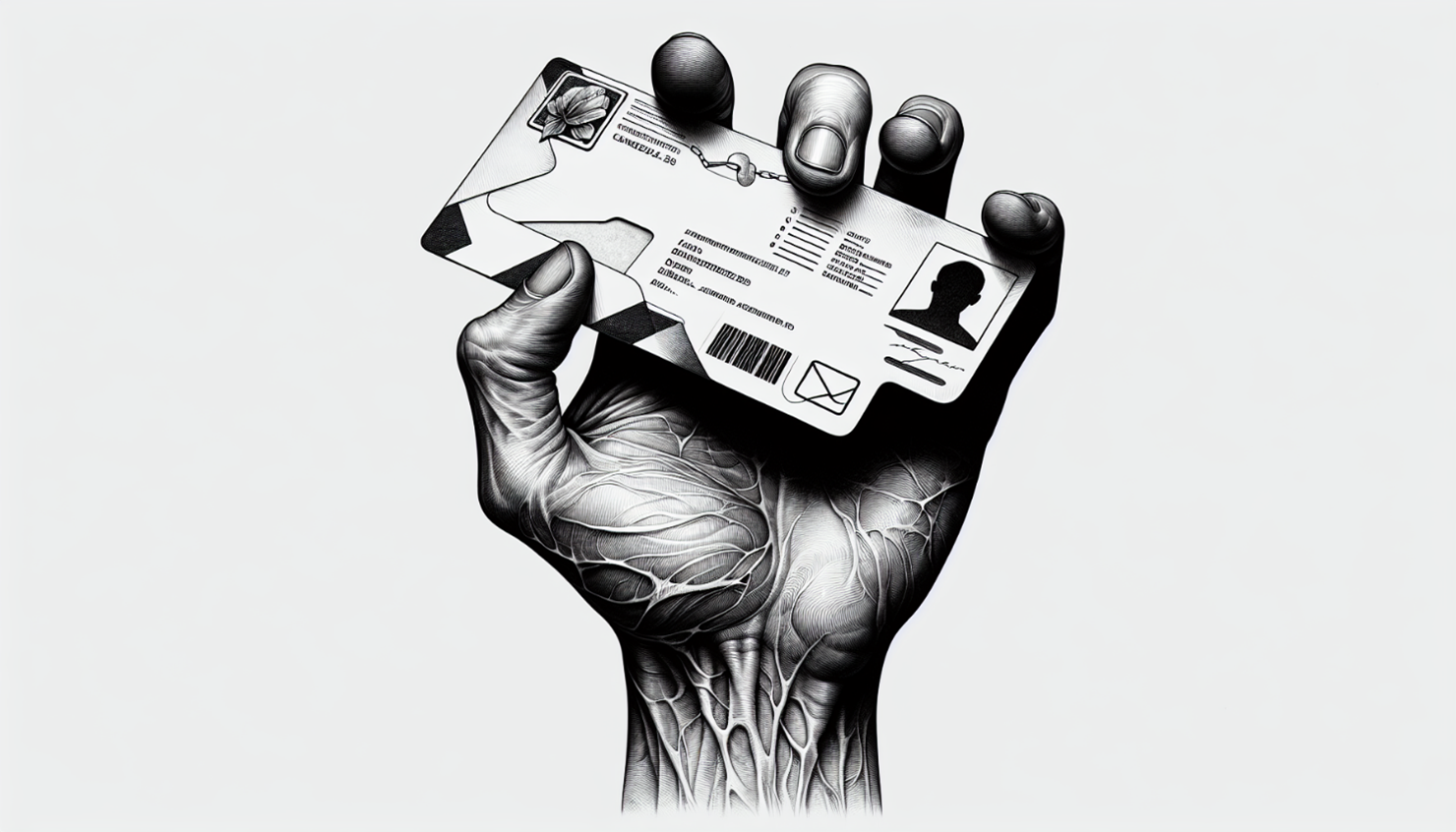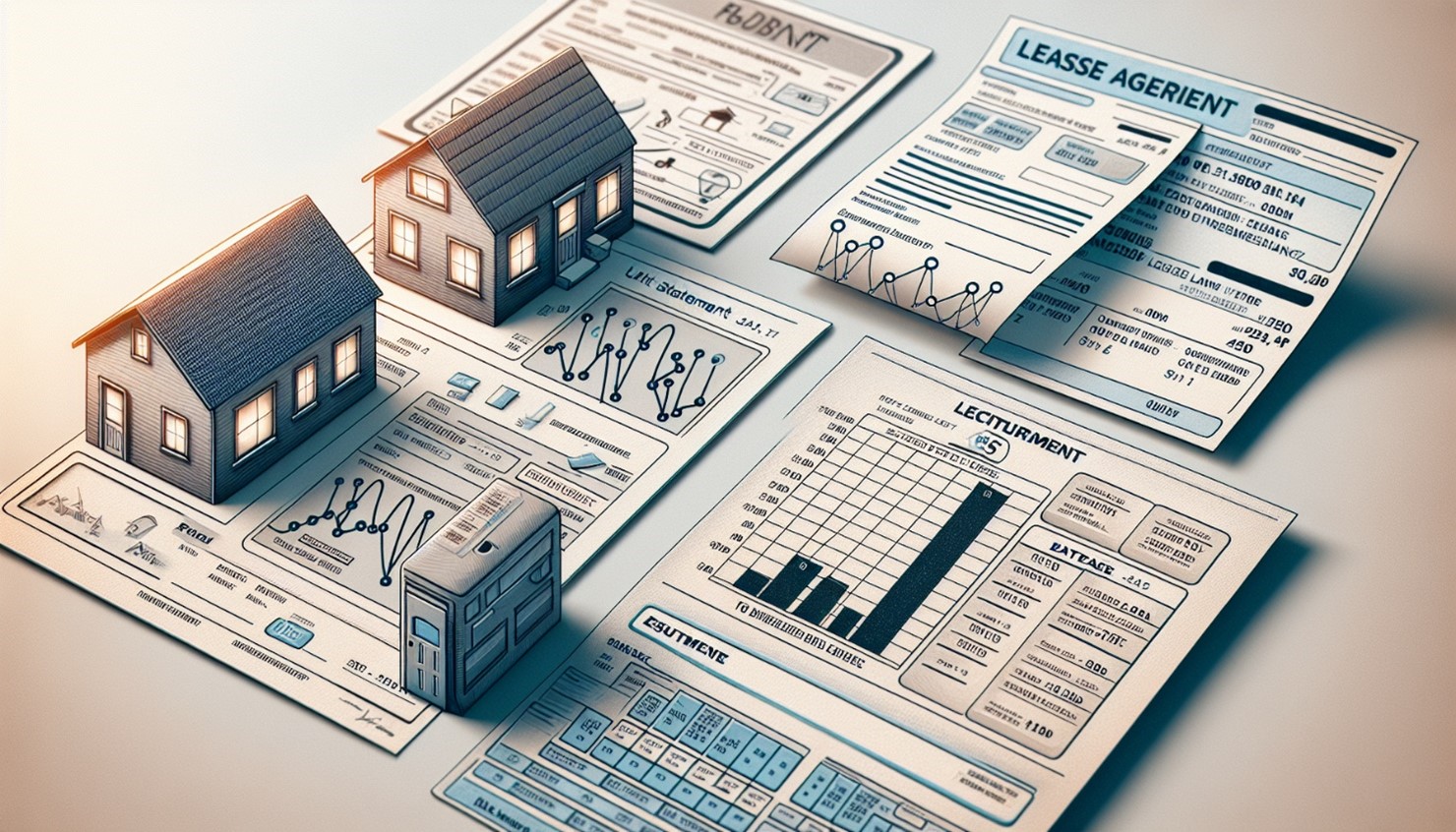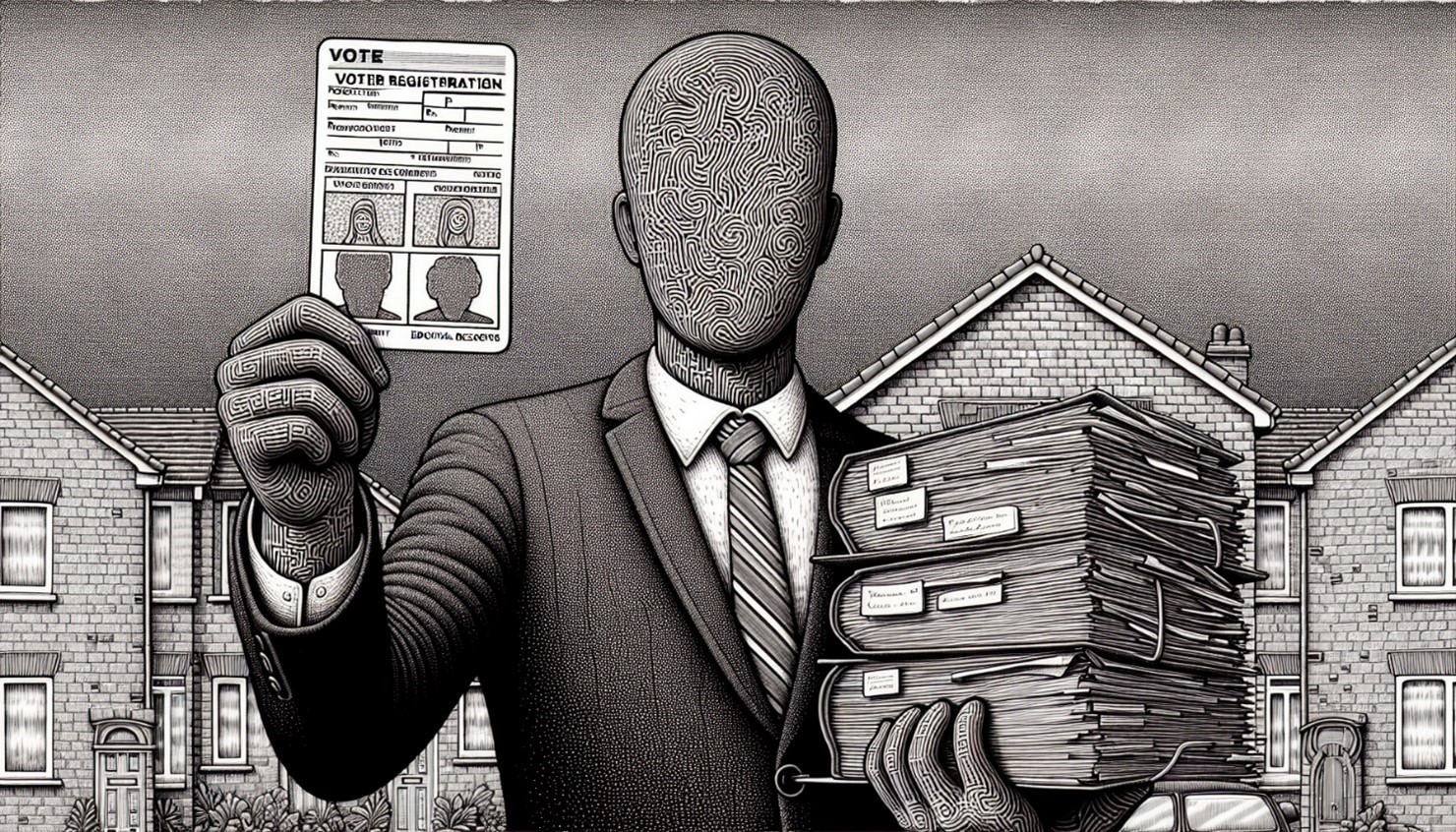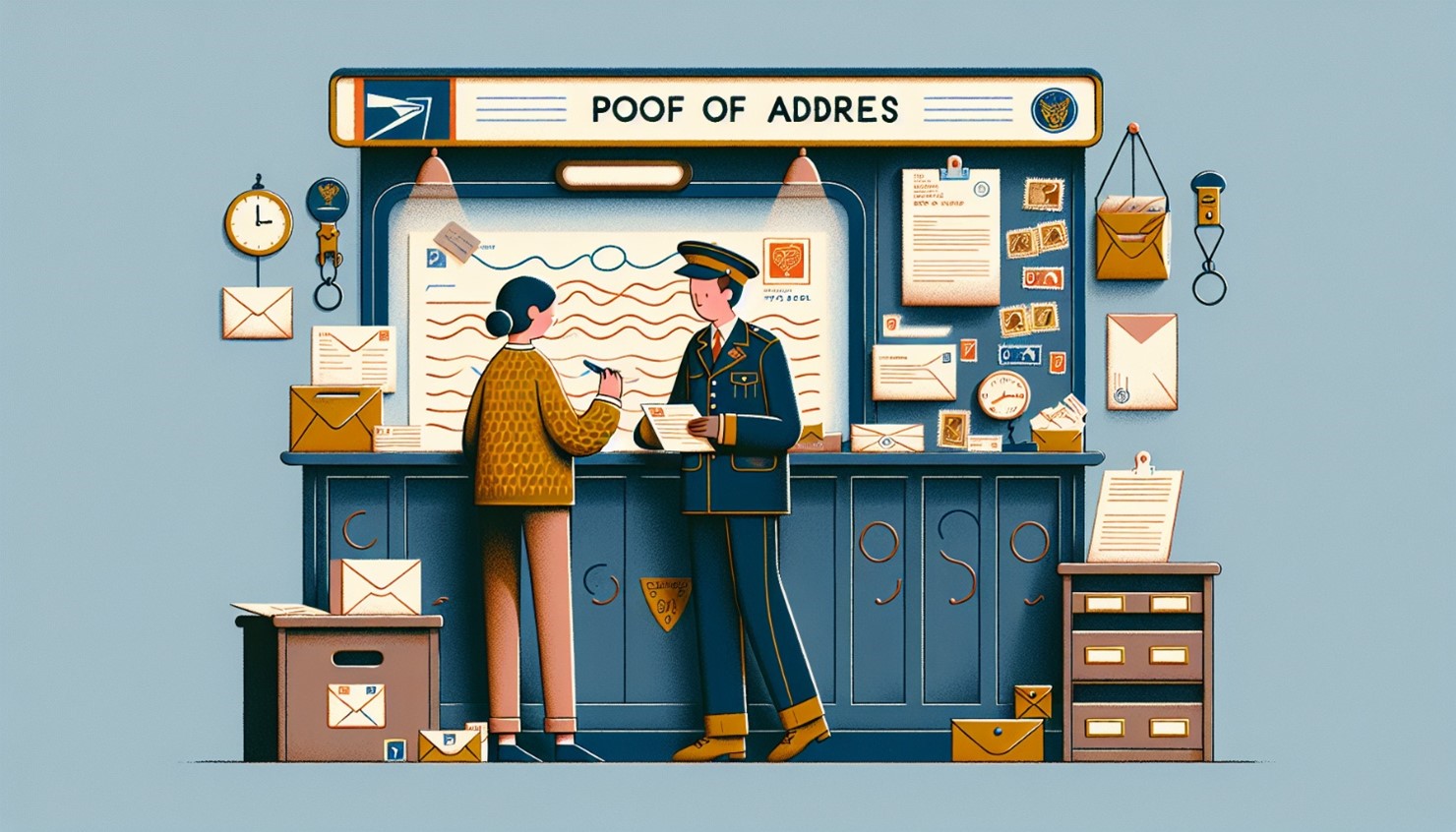Ultimate Guide to Proof Address: What Documents You Need & How to Use Them
Navigating the essentials of proof of address can be crucial for a myriad of legal and financial transactions. If you’re opening a bank account, signing a lease, or confirming your identity, the process requires valid documents that verify your residential address. Understanding which documents meet the criteria—and how to present them—is therefore vital. This guide demystifies proof address, offering a comprehensive look at the documents you need and how they play a fundamental role in your transactions, security, and compliance with regulatory standards.
Key Takeaways
- Proof of address is essential for individual security and to aid organizations in regulatory compliance, fraud prevention, and ensuring correct service delivery.
- Valid documents for proof of address include recent utility bills, bank statements, and contractual documents such as lease agreements and mortgage statements that must contain the person’s current residential address.
- The address verification process can leverage advanced technologies and online options for efficiency, but it may present challenges that can be overcome with innovation in identity verification methods and database matching.
Decoding Proof of Address: Understanding Its Importance

Have you ever pondered why proof of address is such a critical piece of the puzzle in our day-to-day affairs? It’s not merely a bureaucratic formality but a fundamental element in safeguarding your identity and embarking on a myriad of transactions. The essence of proof of address lies in its ability to:
- Confirm your residency
- Offer a shield against the specter of fraudulent activities that haunt our increasingly digital world
- Ensure regulatory compliance, such as Know Your Customer (KYC) and Anti-Money Laundering (AML) directives
- Secure transactions
This commonly accepted proof acts as a veritable sentinel at the gates of financial sanctity, much like an insurance policy.
Proof of address extends beyond individual security; it is a pivotal requirement for organizations and services to function within legal and licensing parameters. Insurance companies, government benefits administrators, and even emerging cryptocurrency platforms lean heavily on address verification to deliver their services to the right recipients, in the right place, at the right time. Recognizing the significance of proof of address enables you to adhere to rules and proactively safeguard your financial and social wellbeing.
Essential Documents for Proof of Address Verification

When it comes to proof of address, not just any document will suffice. The pillars of address verification are built on a foundation of specific, valid documents that are commonly accepted across various institutions. Such documents must be original, recent, and contain your current residential address that matches your identification, ensuring that the address provided is not only current but also authentic.
From utility bills to bank statements and lease or mortgage agreements, these physical documents serve as the gold standard in the verification process, opening the door to a world of services and opportunities.
Utility Bills: More Than Just Monthly Charges
Consider the humble utility bill; it may seem like a simple monthly charge for the comforts of home, but in the realm of address verification, it’s a trusted envoy. A valid utility bill—whether it’s for gas, electricity, water, internet, landline or mobile phone bills—must be a recent dispatch from a recognized authority, proudly bearing the name and address of the resident, and ideally should not be older than three months. These documents should also prominently display the utility provider’s logo and contact information, further affirming their authenticity. To accept utility bills as a means of address verification, ensure that all these criteria are met.
What if you’ve embraced the digital age and opted for paperless billing? Fear not, for you can request a paper copy or simply print an online statement to serve as a valid proof of address. Remember, these documents do more than just account for your monthly dues; they stand as proof of your rootedness in your abode, a beacon of your commitment to the domicile you call home.
Bank Statements: Your Financial Footprint as Address Evidence
Moving onto the financial sector, bank statements are no less significant in their role as address documents. These statements are akin to a financial footprint, showcasing not only your monetary transactions but also solidifying your residential claims. These statements must be current, with transactions from the last two to three months, and should display an address that matches the one provided to the bank.
Most institutions, especially banks, insist on the document being dated within the last three months to ensure the address is still relevant. Therefore, when you present your bank statement as proof of address, you’re not only verifying your financial activity but also reaffirming your presence at your declared domicile, offering a snapshot of your life’s transactions both monetary and residential.
Lease Agreements and Mortgage Statements: Contractual Proof of Residence
The sanctity of a home is often encapsulated in the documents that bind us to it, such as lease agreements and mortgage statements. These documents serve as contractual proof of residence, detailing the sacred agreement between tenant and landlord, or homeowner and mortgage provider. To serve as proof of address, these documents must feature the name and the physical location of the property, forming a reliable link between the individual and their claimed residence.
These documents go beyond formalities; they are integral to our life narratives, firmly grounding us to a particular location in the world. They tell a story of commitment and belonging, backed by the legal weight of contracts and financial agreements. In the eyes of those seeking to verify proof of address, these documents are as good as an anchor cast into the bedrock of your residential history.
Additional Documents That Can Certify Your Address

The tapestry of address verification is woven with a variety of threads, and traditional documents like utility bills or lease agreements are just the beginning. There are additional documents that can certify your address, offering alternative routes to validation for those who may not fit the conventional mold. Some examples include:
- A voter registration card with your full name and current residential address
- A bank statement with your name and address
- A government-issued ID with your current address
These documents, including a tax form dated, serve as authoritative proof of your address, standing as testament to your civic presence.
Accepted documents for address verification include:
- Educational records
- Vehicle registration certificates
- Property tax receipts
- Immigration documents
Each document has its own distinct role in certifying your presence at a given location. These documents expand the scope of proof, providing a wider range of options to validate residency and ensure that every individual, from students to vehicle owners, has the opportunity to prove their domicile and partake in the services and responsibilities it entails.
Navigating the Address Verification Process

The journey through the address verification process can be as intricate as navigating a maze, but with the right documents, it becomes a straightforward path. Presenting a lease agreement, mortgage statement, or a recent bank statement at a bank or financial institution can prove your residency with ease. These institutions, driven by the need to comply with AML regulations and perform due diligence, are turning to advanced tools and technologies.
Automated tools, AI software, and OCR are now at the forefront of extracting real-time and accurate address details from your documents, streamlining the process and ensuring that services are delivered to the verified address without a hitch.
Online Options: Verifying Your Address Online
With the advent of the digital age, a plethora of online options for address verification provide convenience and efficiency. Some options include:
- Downloading a PDF bank statement from your online banking portal
- Ordering a paper version of your bank statement by mail
- Contacting the necessary authority online to obtain a document fit for verification purposes, ready to be printed and presented.
These options allow you to present a crisp proof of address without stepping out of your home.
The online verification process, while efficient, requires a keen eye to ensure the documents submitted meet the stringent standards of authenticity checks against your previously stated addresses. Before taking the plunge into the digital verification process, it is prudent to confirm with your bank or institution to ensure that these modern methods align with their specific verification protocols.
When You’ve Recently Moved: Establishing New Proof
Relocating ushers in a fresh start, accompanied by the duty of generating new proof of address. Promptly updating your address with utility providers and the postal service ensures that future bills or a new lease agreement become the pillars of your proof of address. For those who prefer the tactile touch of paper, toggling services like paperless billing or filling out a change-of-address card with the postal service can secure a physical document in hand.
Changing your address with your bank should also be at the top of your to-do list, facilitating the receipt of a monthly statement with your new address stamped on it—a document as valid as any for address verification purposes. If you’re nesting in a new home with parents or a spouse, their documentation, coupled with evidence of your relationship, can establish your residency at this fresh location.
No Paper Trail? Alternative Solutions for Digital Nomads
For digital nomads or those lacking a conventional paper trail, seeking proof of address can appear overwhelming, however, alternative solutions are available. Maintaining a permanent address in one’s home country, be it with family or friends, can provide a stable point for official correspondence and address verification purposes. In the absence of conventional documents, an affidavit of residence or a proof of residency letter signed and notarized by a landlord or employer can come to the rescue.
Bank accounts and credit cards should be registered to the same address, allowing financial documents related to one’s bank account to double as proof of address. Moreover, a letter from a halfway house, shelter, or similar facility indicating their willingness to accept mail on behalf of an individual can be a boon for those seeking an alternative form of residency proof.
Address Proof Challenges: Overcoming Common Hurdles
Like any journey through bureaucratic procedures, establishing proof of address can present various challenges. Banks and agencies are stringent with their requirements, demanding documents that are timely, named after you, and reflective of your current residency data to stave off the threats of fraud and inaccuracy. Typos, varying international address standards, and the manual nature of traditional processes often set the stage for data entry errors and other hurdles.
However, these obstacles are not insurmountable. Technology solutions are stepping into the breach, with document verification tools and geolocation aiding businesses, especially those operating on a global scale, to navigate the tumultuous seas of address formats and data entry errors. With each challenge comes an opportunity for innovation, ensuring that the process of verifying your address remains as secure as it is efficient.
Innovations in Address Confirmation
The landscape of address confirmation is ever-evolving, ushering in a new era of innovations that streamline the once cumbersome process. Consent-based identity verification services like UtilityID tap into utility provider data to expedite the verification process, reducing the need for manual document scrutiny and transforming hours or days of onboarding into mere minutes. The introduction of government-issued proofs, OTP or PIN-based authentication, OCR technology for real-time scanning, and geolocation data has revolutionized the playing field.
Database matching is also becoming a staple in address verification systems, drawing from the vast records of credit bureaus, utility companies, and government agencies to build a robust verification foundation. Even something as commonplace as an IP address can supplement address checks, although factors like VPNs and large networks can affect accuracy.
Despite these advancements, one must keep in mind the limitations of current services: they can verify the existence of an address, but not necessarily confirm an individual’s residence there.
Special Circumstances: Address Proof for Unique Situations
Life’s tapestry is rich with unique situations, and the quest for proof of address is no exception. For those living abroad, a myriad of original documents, from school records to passports and employment or medical records, may be needed to establish foreign residency. Meanwhile, for those without a fixed residence, like individuals experiencing homelessness, a letter from a shelter, social service, or religious institution, or a general delivery service at a local post office, can serve as a lifeline for proof of residency.
Even a PO Box or private mailbox can play a pivotal role in address verification. In various locales, government IDs or local certifications can provide the necessary evidence of residence, such as the ‘Certificado Histórico de Empadronamiento’ from Spanish town halls, or an address validation letter from the UIDAI portal in the case of updating an Aadhaar card without traditional proof. In every unique circumstance, there is a path to obtaining the appropriate proof, and the key lies in understanding and navigating the options available within each individual context.
How to Update and Maintain Your Proof of Address

Keeping your proof of address current is as vital as a lighthouse beacon for ships in the dark—it guarantees uninterrupted access to services and benefits. The process begins with updating your address with the U.S. Postal Service, either through their online platform or at a local post office, and at a nominal fee. Vigilance is key, as scammers lurk in the waters, ready to charge exorbitant fees for services that are readily available at minimal cost through official channels like USPS.com.
The ripple effect of an address change extends to:
- Government services such as federal taxes, Social Security, and your driver’s license, where updating your address is imperative
- Businesses must also navigate through platforms like Duns & Bradstreet and SAM.gov to ensure their company address is current
- Service providers, to ensure that the bills and statements you receive remain valid and reflective of your current residence, serving as appropriate proof when the need arises.
Summary
As we draw the curtains on this journey through the world of address verification, it’s clear that proof of address is an indispensable part of our lives, deeply intertwined with our identity and the services we access. From the simplicity of utility bills to the complexity of lease agreements, the documents you provide as proof of residence serve as the keys to unlocking a multitude of doors, from banking services to government benefits. It’s not merely about having a document with your name and address; it’s about having the right documents, updated and authentic, that reflect your current living situation.
In this ever-changing landscape, staying informed about the latest innovations and solutions can make the process smoother and more secure. Whether you are a digital nomad in search of flexible options, a recent mover establishing new roots, or someone facing unique living circumstances, there is a path forward. Remember to promptly update your records, embrace the new technologies that can aid in verification, and always keep a vigilant eye for alternative solutions that cater to your specific needs. May this guide serve as your compass, directing you towards a future where proof of address is a seamless aspect of your personal and financial narrative.
Frequently Asked Questions
What requires proof of address?
You need to provide proof of your address when opening a bank account, getting a new driver’s license or other ID, or accessing government benefits or services. This is a common requirement for these types of transactions.
What is a legit proof of address?
Legitimate proofs of address include letters from a recognized authority, a lease agreement, a credit card statement, and an employer’s certificate. Residential contracts, such as a lease or mortgage agreement, can also serve as valid proof of residency. These can be used to establish your current address.
Can I use a digital bank statement as proof of address?
Yes, you can use a digital bank statement as proof of address as long as it includes your current address and is up-to-date.
What are some challenges I might face when providing proof of address, and how can I overcome them?
To provide a proof of address, ensure your documents are recent, correctly named, and reflect your current living situation to overcome challenges like outdated or mismatched documents. Leveraging technology solutions can also help streamline the process and reduce errors.
Are there any innovative methods for address verification that are being adopted?
Innovative methods for address verification, such as consent-based identity verification services, OTP or PIN-based authentication, OCR technology, and geolocation data, are being adopted to make the process faster, more convenient, and secure.
Our service helps to pass verification in a wide range of situations
- Accepted by Marketplaces or online shops
- Accepted by Banks & Fintech & Crypto
- Notary Certification for extra
- English Language
- Available to everyone
- Delivery within 24 hours via e-mail
- We send in pdf format, easy to print out

